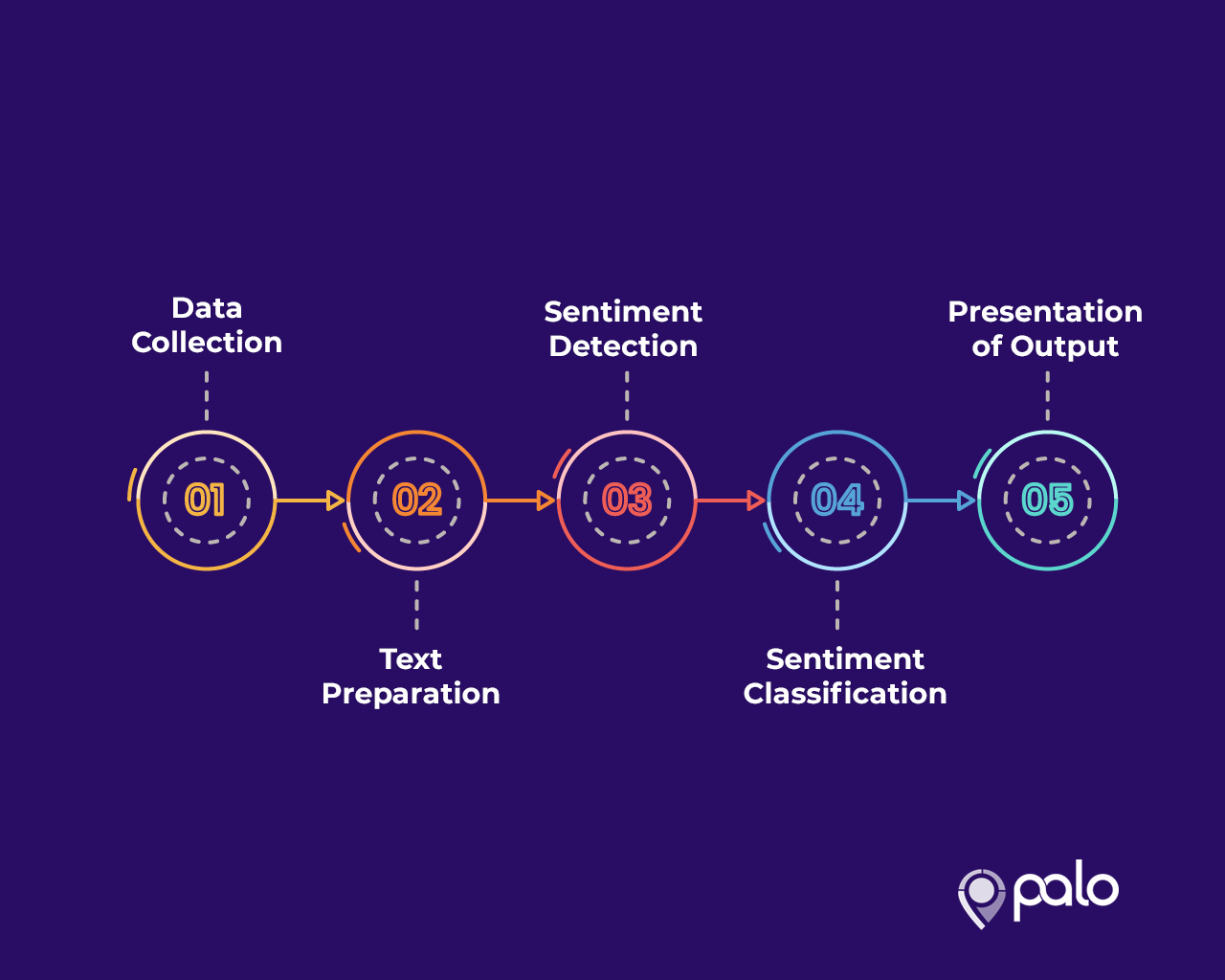
Call Center Trends for 2024: What to Expect
Call centers are undergoing a massive transformation thanks to the rise of artificial intelligence (AI) and other technologies. At least 90% of call centers have migrated to remote or hybrid workplace models since the beginning of the COVID-19 outbreak.
Many companies are investing in new and advanced call center technologies that allow them to provide a seamless customer experience and increase operational efficiency.
In fact, early projections show that the call center industry is expected to grow at the rate of 10% per year, reaching a market size of $481 billion in 2024.
With such rapid growth and technological advancements, call centers need to stay updated on the latest trends to stay ahead of the competition.
Today, we discuss some of the top trends that will be shaping the industry in 2024 and what it means for businesses and customers alike.
1. Omnichannel Experience Will Still Take Center Stage
Providing a consistent and smooth customer experience remains a top priority for many businesses. However, achieving this dream remains a challenge for most call centers.
In 2024, we expect to see an increase in the adoption of omnichannel communication platforms. The primary purpose is to help customers switch between different touchpoints easily and still receive consistent service.
While most interactions will still happen over the phone, the use of other channels, such as live chat options, email, and social media, is expected to grow.
The primary challenge for business owners will be to ensure a seamless and consistent experience across different channels.
Consumers no longer view business encounters in isolation. Instead, they see brands as one cohesive unit. This is something that the omnichannel approach acknowledges.

Call centers have been adjusting by integrating numerous communication channels into a single unified system that suits the evolving customer needs.
Consider a simple case where a client asks a question about your product or service via live chat before deciding to call.
With an omnichannel approach, the agent can access all the previous chat transcripts and clearly understand the customer’s needs. This helps in reducing handling time and improves first-contact resolution.
The omnichannel approach is expected to become more of a reality thanks to AI and automation. Communications started by chatbots will be transferred seamlessly to live operators over the phone or in-person chats.
Data analytics will also allow businesses to monitor consumer behavior and preferences across different channels. This will provide valuable insights in developing personalized and targeted marketing strategies.
2. Integration of AI and Automation
AI is playing a significant role in the transformation of the call center industry. The use of chatbots for initial customer interactions has become mainstream, providing fast and efficient service while reducing operational costs.
In 2024, we expect to see increased integration of AI into various aspects of call center operations, such as workforce management, predictive analytics, and knowledge management systems.
AI-powered chatbots will continue improving as they learn from previous customer interactions. They will be able to handle more complex queries and provide human-like responses through natural language processing (NLP) technology.
Automation will also be crucial in streamlining processes like call routing, data entry, and scheduling. This will improve efficiency and free up agents to handle more complex and high-value interactions.
3. Rising Demand for Self-service
Research shows that approximately 67% of customers prefer self-service over speaking with a call center agent.
While humanizing customer experiences is still crucial for call centers, modern consumers also demand convenience and autonomy.
Self-service platforms play a critical role in enhancing customer satisfaction by allowing them to resolve some issues on their own.

The self-service model is known to boost operational efficiency, cut down on operating costs, and facilitate the provision of 24/7 service.
These platforms also gather critical data that can help you gain insights into customer behavior and what you can do to improve customer experience.
As the market moves towards adopting broader self-service solutions, businesses that don’t adapt risk falling behind their main competitors. Offering self-service options allows you to meet and exceed customer expectations.
4. Remote Workforce Will Remain the New Norm
The COVID-19 pandemic accelerated the adoption of remote work models in call centers. And this trend is here to stay.
With advancements in technology, it’s now possible for agents to work from anywhere and still provide the same level of service as they would in a traditional office setting.
This has allowed businesses to save on operational costs and expand their talent pool by hiring remote agents from different locations.
In 2024, we expect to see an even larger percentage of call center employees working remotely or in hybrid models.
However, this will bring new challenges, such as ensuring data security and maintaining a solid company culture. Call centers will need to invest in robust technology and implement strict policies to address these concerns.
5. Focus on Employee Well-Being and Retention
Today, the United States faces an employee turnover crisis, including in the call center industry. In 2024, businesses are expected to invest more in improving employee well-being and retention.
This includes offering competitive salaries and benefits, implementing flexible work arrangements, and providing opportunities for career growth.
For call centers, we expect to see a significant rise in flexible scheduling and general promotion of work-life balance. Support for mental health will also be an essential priority for businesses.
We expect to see clearly defined career progression routes that will provide employees with a sense of direction and motivation.

Companies will also invest in employee training and development programs to enhance their skills and performance.
The commercial benefits of increased focus on employee well-being and retention will also be immense. Retaining experienced call center agents will lower the need for constant recruiting and training.
It will also lead to increased customer satisfaction since happy staff provide better customer experiences.
6. Increased Focus on Data Security and Compliance
2023 has been characterized by a massive increase in cyberattacks and data breaches, with the call center industry being a prime target. In response, businesses are placing greater emphasis on data security and compliance.
In 2024, we expect to see even stricter measures in place to protect sensitive customer information. This will include increased use of encryption technologies and implementing multi-factor authentication for system access.
Call centers will also need to ensure compliance with regulations such as the General Data Protection Regulation (GDPR), the California Consumer Privacy Act (CCPA), and the Telephone Consumer Protection Act (TCPA).
Failure to comply with these regulations can result in hefty fines and damage to a company’s reputation.
To stay ahead of potential threats, businesses will invest in advanced cybersecurity solutions and regularly train their employees on best practices for data security. This will not only safeguard sensitive information but also build trust with customers.
The renewed focus on data security and compliance reflects the industry’s commitment to ensuring operational continuity, safeguarding customer trust, and navigating the intricate digital world.
7. Increased Focus on Sustainability and Social Responsibility
The call center business is gearing up towards embracing sustainability and social responsibility as crucial parts of customer service strategy in an era distinguished by increased social awareness and environmental conscience.
Businesses are seeing the importance of integrating critical business operations with moral principles that contribute to the greater good of employees, customers, and society.
In 2024, we expect call centers to implement sustainable practices such as reducing paper usage, utilizing renewable energy sources, and promoting ethical sourcing.

Social responsibility will also be a key focus, with businesses supporting charitable causes and participating in volunteer activities.
This benefits the communities they serve and builds a positive brand image for the company. Customers are becoming more conscious of how their purchasing decisions impact society and are more likely to support businesses that align with their values.
A World of Endless Possibilities
The call center industry is constantly evolving, and it’s exciting to see what the future holds. With technological advancements, we expect to see even more sophisticated AI-powered solutions to enhance efficiency and improve customer experiences.
Other trends to watch out for include the use of virtual agents, biometric authentication, video-based interactions, and voice recognition technology.
At PALO, we leverage technology to power our pay-per-call campaigns and are excited to see how these advancements will continue to shape the industry.
Our team has been in the game for over a decade, helping businesses generate high-quality leads and drive sales through innovative pay-per-call strategies.
Contact us today to find out how we can help you stay ahead of the curve and take your business to the next level.






